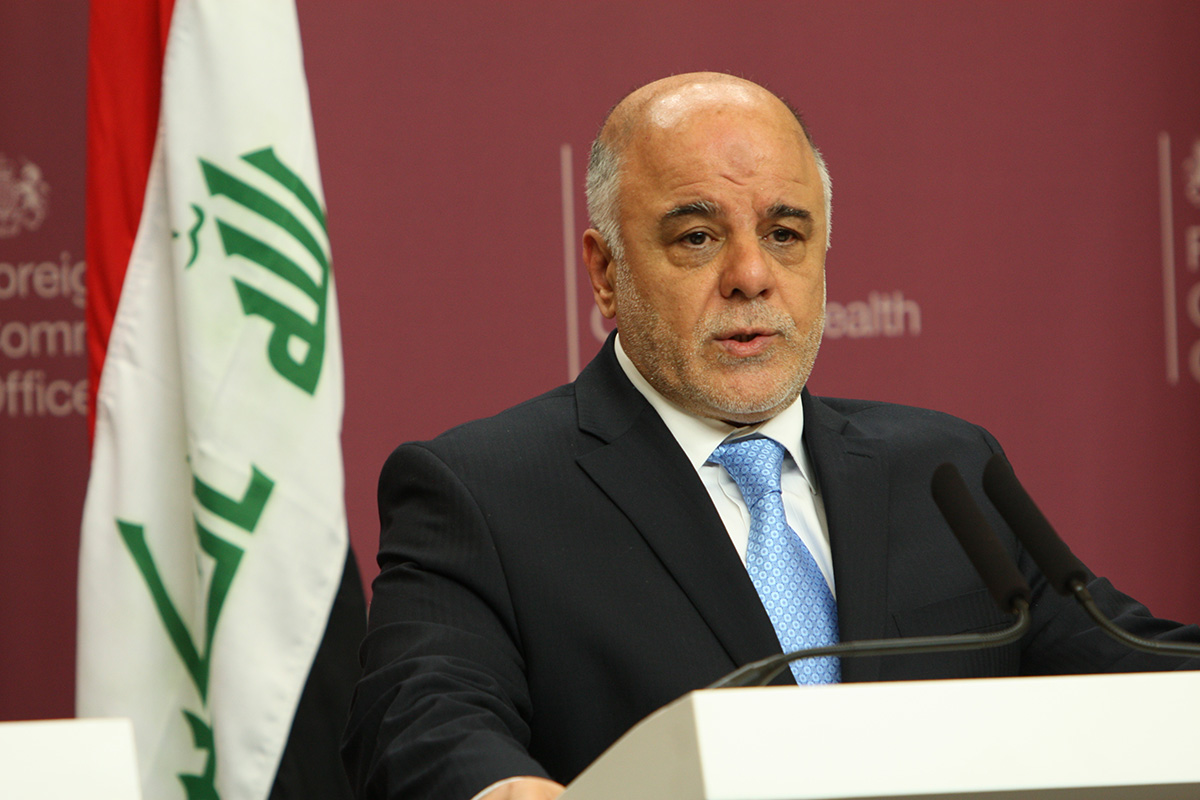How Baghdad is punishing the Kurds post-referendum
Iraq has not been discouraged by the US State Department's call for calm.
In the wake of the Kurdistan independence referendum, Iraq’s central government took the unusual step of closing two international airports in the Kurdish region of northern Iraq Friday, Iraqi troops have been sent to Turkey and Iran for military drills along the borders of the Kurdish region, and the Iraqi parliament is seeking to strip Kurdish MPs of immunity.
Iraq’s central government also is being pushed to sanction the Kurdish region by its Shi’a parties, which form the majority of the parliament.
Iraqi Prime Minister Haider al-Abadi has tried to balance threats with action in the wake of the September 25 referendum that saw 93% of voters in the Kurdish region support independence.
“The Kurdistan Region has to cancel the result of the unconstitutional referendum and then engage in serious dialogue,” he said on October 2.
Abadi has not been discouraged by the US State Department’s call for calm.
On Friday, Secretary of State Rex Tillerson said: “We call upon the central government to reject threats or even allusion to possible use of force. The US asks all parties, including Iraq’s neighbors, to reject unilateral action and the use of force.”
There has been talk of Abadi meeting with Kurdish President Masoud Barzani under the auspices of an invitation by French President Emmanuel Macron.
But it appears any reconciliation between Erbil and Baghdad is not forthcoming.
The Kurdistan region enjoys autonomy in Iraq, and that has meant running its own airports; borders; maintaining its own Peshmerga security forces; and exporting oil through its own economic management.
Baghdad now wants to use the referendum as an excuse to roll that back.
With the war on the Islamic State seemingly close to an end, Baghdad wants to punish the Kurdish region for seeking independence.
Because Iran and Turkey also have their own reasons for opposing the referendum in the Kurdish region, Iraq has found new allies in Ankara, and grown closer to its existing ally in Tehran.
The reported military exercises with Turkey were the start, and the military drills conducted in Iran on Monday are a continuation of Baghdad flexing its muscles. The Iranian exercise led to the closing of two border crossings between the Kurdish region and Iran, according to Rudaw, a local Kurdish TV channel. Iraqi Shi’a militias (Hashd al-Shaabi) that are aligned to Iran and the Iranian Revolutionary Guards Corps both participated, as well, Rudaw claimed.
The close cooperation of the Shi’a militias and Iran’s Shi’a forces is part of a wider Iranian influence among Shi’a groups, including Hezbollah, which now threaten the Kurdish region. Hezbollah leader Hassan Nasrallah on Monday condemned the referendum as the military drill was taking place.
For years, Kurdish Peshmerga officers and officials warned that the next conflict in Iraq might come between Kurds and the Hashd al-Shaabi. Now that appears increasingly likely.
Furthermore, the National Iraqi Alliance of Shi’a parties in parliament has sought to strip immunity from Kurdish MPs who supported the referendum.
But not everything is a black and white in the Shi’a-Kurdish divide.
Grand Ayatollah Ali Sistani, the leading Shia cleric, has called for dialogue with the Kurdish region. It was his 2014 fatwa that led to the creation of Hashd al-Shaabi to defend Iraq from Islamic State.
The real question facing the Kurdish region as it tries to respond to Baghdad’s attempts at isolation, is what Turkey will do.
Most of the economy of the KRG is focused on Turkey; on a recent trip there, I saw a sign claiming that a Turkish bank had its largest branch in Erbil, the capital of the KRG. There are Turkish hotels, contractors and Turkish investment.
Turkish President Recep Tayyip Erdogan is scheduled to travel to Iran on Wednesday. In the lead-up, Deputy Prime Minister Bekir Bozdag was quoted in Hurrityet as saying Turkey will act with “reason” in coordination with its neighbors. Its foreign minister, Mevlut Cavusoglu, told Anadolu news agency the KRG could “take a step back” and then Ankara would “restore ties” with the region if the drive for independence was stopped.
This indicates that Ankara would like to find a way to not enforce more sanctions on the Kurdish region, even as it threatens to do so.
There is, however, a fifth controversy that affects the KRG, Baghdad, Iran, Turkish nexus and that is the issue of Israel.
In the lead-up to the Kurdish referendum, Israeli flags appeared at pro-Kurdistan rallies, leading to conspiracy theories and claims about Israel’s role in the referendum.
On Sunday, Prime Minister Benjamin Netanyahu laughed off accusations of Israeli involvement, but he said Jerusalem has “deep, natural sympathy” for the Kurdish people.
One last problem the Kurds face in the balance of power in Iraq is that the country’s Sunnis have had their political power shattered.
Many Sunni cities lie in ruins after ISIS, and Shi’a flags dominate the landscape.
Controversial leader Nouri al-Maliki’s pre-2014 government marginalized and intimidated Sunni politicians, leading some, such as Tariq al-Hashimi, to flee the country. These were natural allies to the Kurds to counterbalance Baghdad’s power.
Now the Kurdish region increasingly stands alone against Baghdad and Iranian influence, and has taken a “wait and see” approach to the weeks after the referendum, hoping to weather the storm.
Baghdad thinks the storm has not begun.
Source: The Jerusalem Post / Seth J. Frantzman

